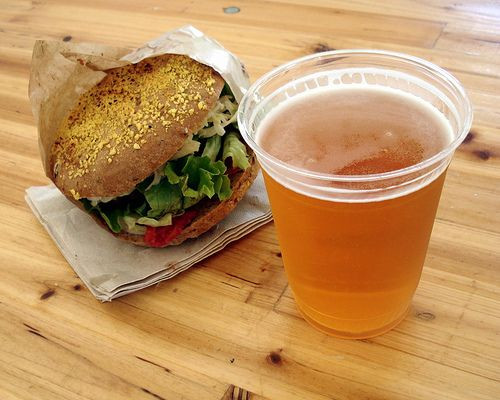Genetic Link Found Between Alcohol Abuse And Eating Disorders: Could This Change Treatment For Both Conditions?

Ample research has been conducted on genes carrying a risk for alcoholism and eating disorders, but a genetic link between the two conditions hardly receives consideration. Now, a study conducted at Washington University School of Medicine in St. Louis shows just how closely related these health concerns are.
Researchers are confident that both physicians and therapists can use the data to treat patients suffering from either alcohol dependence or binge-eating more effectively. The team plans to run further testing on blood or saliva so that the actual gene involved with the link can be identified.
“When you go to an eating disorder treatment center, they don’t often ask questions about alcoholism. And when you go for alcoholism treatment, they don’t generally ask questions about eating disorder symptoms,” explained the study’s lead author Melissa A. Munn-Chernoff, Ph.D. “If centers could be aware of that and perhaps treat both problems at the same time, that would be a big help.”
Munn-Chernoff, along with her colleagues from Washington University, examined 6,000 adult twins in Australia. The research team used identical twins because they share 100 percent of their genetic makeup compared to fraternal twins who only share around half.
Each twin answered a questionnaire pertaining to his or her use of alcohol as well as any history of binge-eating. The results of this survey showed that 25 percent of men and six percent of women admitted to a history of alcohol abuse. Another 11 percent of men and 13 percent of women reported a problem with binge-eating.
“By comparing the findings in identical and fraternal twins, we can develop estimates of how much of the difference in particular traits is due to genes or environment,” said Munn-Chernoff. “We found that some of the genes that influence alcohol dependence also influence binge eating in men and women.”
A statistical analysis ran on a scale from zero, or no shared genes, to one, all genes shared, revealed a .26 overall correlation between an eating disorder and alcoholism. A separate investigation of just women pointed to a .32 correlation between purging or laxative abuse and alcohol dependence.
“In clinical practice, it’s been observed that individuals with eating disorders also have high rates of alcohol abuse and dependence,” Munn-Chernoff added. “Other studies have focused on the genetic connections between alcohol dependence and eating disorders, but all of those studies looked only at women. Ours was the first to include men as well.”
Source: Duncan A, Grant J, Wade T, Agrawal A, Bucholz K, Munn-Chernoff M. A Twin Study of Alcohol Dependence, Binge Eating, and Compensatory Behaviors. Journal of Studies on Alcohol and Drugs. 2013.



























